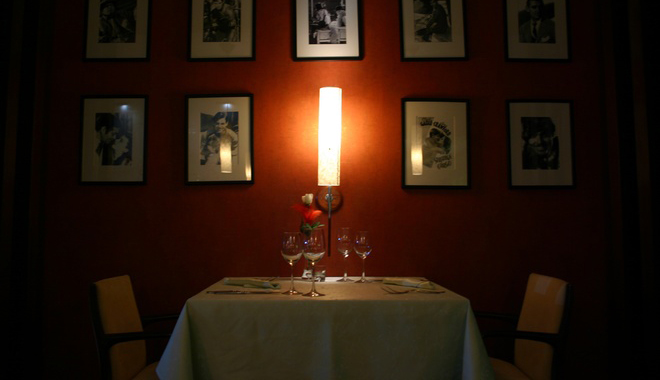
SMITH BRAIN TRUST — Online services such as OpenTable make it easy for consumers to make restaurant reservations — and not show up. But higher-end restaurants are countering this, and the trend is global:
- A restaurant critic in Minnesota laments a 'no-reservations' trend among Twin Cities dining spots in response to no-shows.
- Chefs in South Korea have teamed with their government’s Fair Trade Commission and the Korea Consumer Agency to launch a campaign to educate and sway consumers against the practice.
- Montreal restaurants have been grumbling via social media about the trend as recently as last month after 54 no-shows over consecutive weekends at one eatery translated to a loss of about $1,700.
- Baltimore’s Sotto Sopra — saying it loses up to $150,000 a year from no-shows and canceled reservations — will begin to require credit card information for large reservations and charge a fee to diners who don't show.
Sotto Sopra's new policy can deter most no-shows, but a segment of customers will still not show up and eat the cost, marketing professor Janet Wagner at the University of Maryland's Robert H. Smith School of Business recently told the Baltimore Sun. The lack of human interaction in online reservation systems lets consumers cancel without feeling responsible for the consequences, she says. "When you're working with the Internet, it's just so faceless that it's easy to forget that you're actually hurting the businesses that you've promised to patronize.”
Wagner, who directs Smith's Center for Excellence in Service, says, on the other hand, "cancellation fees are a standard practice in a number of industries — fees or penalties of some kind at hotels, airlines — it's not at all unusual. So I think people are getting used to the idea."
One alternative solution is to call customers to confirm they're coming, Wagner says. That approach appears in the National Restaurant Association's “Say good-bye to no-shows” checklist. The suggestions range from cancellation notices and applying no-show charges to a gift certificate to encourage a future visit by the customer, to giving rewards points to diners who honor their reservations.
Ticketed Dining
Another counter-approach is “ticketed dining” through which reserving a table extends to purchasing the meal in advance — similar to buying tickets online before heading to the theater. The startup Tock, for example, charges restaurants $695 per month for a service that can give patrons convenience of not worrying about the bill after dinner.
Wagner says this emerging practice signals that “high-end restaurants, in particular, can no longer rely exclusively on excellent food and service to stay in the game.”
“When customers dine out, they expect an aesthetic experience, just as they expect an aesthetic experience when they go to a concert or play,” she says. “Ticketed dining is a way to signal that the quality of this experience will be high.” The challenge to the restaurateur, now, is to create an experience that lives up to the consumer’s expectations, she adds. “As long as their expectations are met, high-end ‘foodies’ will accept buying tickets.”
Demand-Based Pricing
Ticketed dining further allows restaurants to introduce demand-based pricing — like $145 to $175 tickets for a multicourse tasting menu at San Francisco’s Lazy Bear restaurant — based on the day and time.
Demand-based pricing, Wagner says, is a standard yield management practice in service businesses ranging from professional sports to air travel. “Consumers complain about this practice, but in the end, accept it, because they want the service," Wagner says. But there is an advantage for consumers, “those who are more price-sensitive and learn when demand for a service is likely to be lowest and cheapest, and adjust their behavior accordingly,” she says. “Customers who aren't price-sensitive, but care about getting the service when they want it, are willing to pay more.”
Ultimately, she says, “there is no reason to expect that this model won't work in restaurants, particularly at the high end.”
GET SMITH BRAIN TRUST DELIVERED
TO YOUR INBOX EVERY WEEK
Media Contact
Greg Muraski
Media Relations Manager
301-405-5283
301-892-0973 Mobile
gmuraski@umd.edu
About the University of Maryland's Robert H. Smith School of Business
The Robert H. Smith School of Business is an internationally recognized leader in management education and research. One of 12 colleges and schools at the University of Maryland, College Park, the Smith School offers undergraduate, full-time and flex MBA, executive MBA, online MBA, business master’s, PhD and executive education programs, as well as outreach services to the corporate community. The school offers its degree, custom and certification programs in learning locations in North America and Asia.